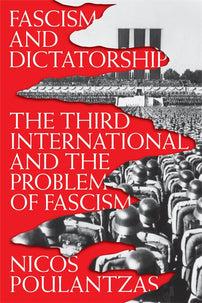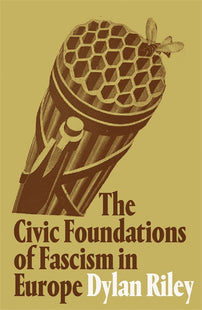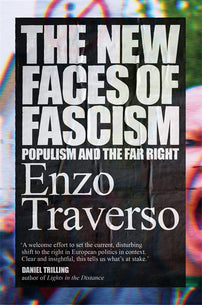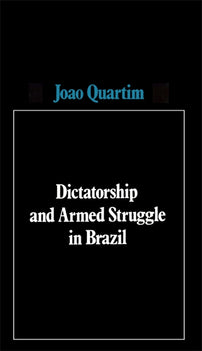“A Time Bomb that Everyone Chose to Ignore is Starting to Go Off”: An Interview with Vladimir Safatle
In his successful presidential campaign, Brazilian far-right politician Jair Bolsonaro has mobilised voters from across the political spectrum. So how can we understand the growing support for authoritarianism in Brazil? Interviewed here for the Portuguese-language edition of Deutsche Welle, Chilean-Brazilian philosopher Vladimir Safatle reads the success of Bolsonaro's “anti-campaign” as the opening shot in an ascendant post-liberal fascist politics that has shifted the locus of action from the streets to the virtual realm.
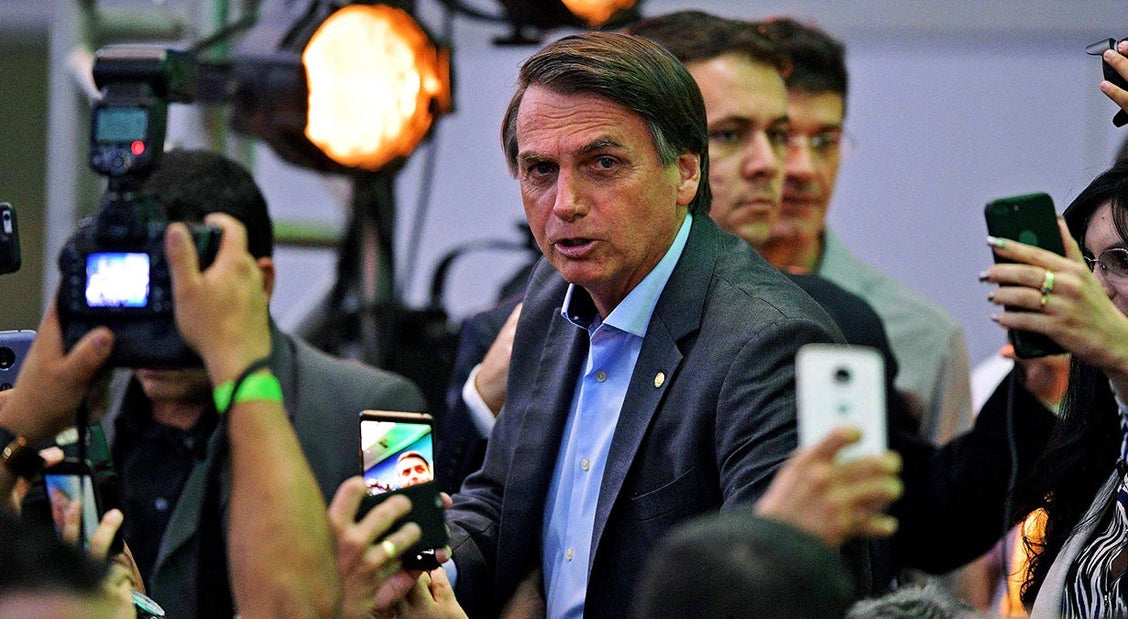
This interview has been translated by Nicolas Allen.
DW: How can one explain the growing support for authoritarianism in Brazil?
Vladimir Safatle: It is impossible to understand the current situation without looking back to what happened at the end of Brazil’s military dictatorship. Brazil failed in spectacular fashion when it had the opportunity to free itself from its dictatorial past, which is now rearing its head again. No other Latin American country runs the same risk of militarization and a traditional-style coup as Brazil today. In no other country on the continent do the armed forces have the same presence in everyday public life. This clearly shows that the conciliatory settlement reached during the democratic transition was the most extraordinary act of cowardice in the nation’s history.
The conciliatory transition left untouched an entire political class that was tied to the dictatorship, just as it allowed the armed forces to continue nurturing a mentality in which a state of exception, like the one that is now returning, is wholly justifiable. Likewise, the transition left intact a component of civil society that potentially supports strong, authoritarian governments, because during the transition the country never pursued a policy of memory and justice, which would have been fundamental for avoiding the regressions we are now seeing.
DW: What was the role of the 1988 Constitution, now approaching its 30thanniversary, in terms of that transition process?
VS: The 1988 Constitution is the expression of the era’s conciliatory politics. It is often said that the Constitution is a “citizens’ constitution”, one that guarantees fundamental rights. Nevertheless, the Constitution lacks implementation. To date, we have seen 95 constitutional amendments, with two or three per year, in a process that lasts months. The obvious conclusion from all this is that, ever since the National Constituent Assembly, the National Congress functions for the simple purpose of de-constituting the Constitution. It came into the world with that design.
On the other hand, 30 years after the fact, there are constitutional laws that never see implementation due to a lack of supporting legislation. It is a total aberration. There is a constitutional law calling for the taxation of large fortunes in Brazil that has never been applied, for lack of supporting laws. The Constitution arrived stillborn.
The Constitution was the outcome of an entire structure of conciliation involving different sectors of Brazilian society, several of which were attached to the military. The army showed up with its own 28 clauses and practically rammed them down the Constituent Assembly’s throat. Among them are those outlining the function of the Armed Forces, which includes maintaining public order, another complete aberration since the function of the Armed Forces is to defend the integrity of the national territory, nothing more. What we have now is a time bomb that everyone had chosen to ignore.
DW: Is it possible to imagine a Bolsonaro government conforming to a more traditional mould, working with the Congress in order to govern by majority?
VS: There are several options on the table when discussing a possible Bolsonaro government. Much of that will depend on the types of resistance that might emerge. We must remember certain things here. First, Brazil is in a sense an aberration from the point of view of the neoliberal austerity regimes that have been applied until now.
The settlements reached under Brazil’s New Republic meant that there was little room to advance, and little to regress. There were a set of clearly defined social forces that managed to create a sort of equilibrium. One effect of this was that the neoliberal austerity plans applied throughout Latin America, like in Argentina, were not implemented here.
As of 2018, the two largest companies in Brazil are publicly owned, as are the two largest banks. Beyond that, Brazil’s healthcare system provides free, universal coverage for 270 million inhabitants. No other country in the world with a population of more than 100 million has managed that. There are also 57 federal universities, all of them free of charge. These are not elitist universities. Only in the University of São Paulo can one find students whose families earn ten times the minimum wage. Brazil’s situation is thus very atypical from the vantage point of neoliberalism.
Advocates of the neoliberal agenda understood that the only way to impose their reforms would be through authoritarian means, as was the case in Chile under Pinochet. The neoliberalism being proposed is authoritarian in its nature– in this sense it is clearly different from that of Europe. There, the extreme-right is anti-liberal, protectionist, permeable to certain social demands from the left, and willing to speak out against the financial powers. Precisely for that reason, European neoliberalism needs to be implemented by centrist figures. The case is different in Brazil. The recent polls show that 68% of the population is opposed to privatizations, 71% is against labour law reforms and 85% is against pension cuts.
DW: So adopting that agenda on the campaign trail would not be viable?
VS: They can only do so by hiding that agenda, by not allowing it to be clearly exposed and discussed. The only way to accomplish this is by reviving the authoritarian ghosts from Brazil’s past and placing them at the centre of the debate. The bigoted grandstanding on display today is the key to a rhetorical strategy that seeks to annul the public sphere. What we have seen up to now is an anti-campaign, based on the emptying out of the political space and the provocation of vulnerable minorities –blacks, women, LGBT– who are mobilizing, and are right to do so. This is how the entire campaign has played out.
In Brazil there is a fascist potential, more or less repressed, that is now asserting its right to exist and is growing in strength. This has been a long time coming. The military dictatorship had its civilian support and the racist and bigoted opinions of certain sectors of Brazilian society are well known. On the other hand, one key aspect has been absolutely astonishing: that the campaign has abandoned the public space and moved into the virtual environment, isolated from society. In that virtual space, the continuous production of images and false videos with powerful rhetorical appeal, capable of being widely shared, has ended up setting the tone for the campaign.
This was evident in the demonstrations against Bolsonaro, rallying under the banner #EleNão: hugely popular demonstrations occupied the streets of Brazil, and in the next instant, they were neutralized. No one understood what exactly had happened. Shortly after the demonstrations, Bolsonaro saw an increase in his lead in the polls. Little by little we started to understand what had taken place. A remarkably organized network had circulated professionally produced images, seeking to neutralize the event by replacing it with false accounts of what had taken place. Photos having nothing to do with the protest began to make the rounds, with the clear objective of disparaging the demands raised by the demonstrations. The streets had been neutralized by a virtual mobilization.
These two components constitute an entirely alternative model from the traditional liberal democratic way of doing politics. That traditional model has its limits, but it nevertheless contemplated a type of public space in which society as a whole could make itself present as an oppositional force. This element was brutally undermined. Bolsonaro was stabbed on the campaign trail and was forced to remain on the outside for the rest of the campaign. Every time his vice-presidential candidate or finance minister made a statement, they expressed absolutely appalling ideas that were immediately rejected. In other words, there was no campaign– at least not in the traditional sense of the word.
DW: The rejection of traditional news media and the increasing circulation of fake news have marked this election. How is it possible to engage in debates when the groups involved have rejected any kind of discrepancies with their own position beforehand?
VS: Politics has never been a question of argumentation. It would be an error to assume this. At stake is the mobilization of affects, which in turn express different, conflicting forms of belonging. You cannot argue against affects, only try to de-constitute them, which is a different process. Nevertheless, affects are not irrational. They have their own dynamic and must be understood for their specificity. In a sense, in a technological era such as ours, anyone can produce fake news.
Before, when the media were just the traditional sectors of the press, there were legal methods available to take action and determine the responsible authors. Of course, matters are more complicated than this. There are all variety of methods employed by the major media groups for creating news. But that process has now become invisible: no one knows who produced a given piece of news.
The Bolsonaro campaign at first seemed to be a cartoonish, amateurish, and haphazard affair. But it soon became evident that this was not the case. The quality of the material circulated on the campaign trail shows just how well organised the campaign was. Visual materials defaming the anti-Bolsonaro protests entered into circulation only a few hours after the demonstrations were over, all of them very well produced. I ask myself: who produced these? What production company is behind this?
No one even seems to know who Bolsonaro’s publicist is. Is it the case then that the campaign lacked a strategy? Or, is it rather that the strategy is coming from somewhere else, somewhere that we cannot even perceive? Nothing about the story makes sense. There are organized WhatsApp networks with more than 8 thousand people working to disseminate an enormous number of extremely professional images.
DW: Political scientists tend to begin their analysis of the current crisis with the 2014 elections. But what exactly is the relation between the current moment and the protests of 2013?
VS: The protests were a fundamental event in Brazilian history. The phenomenon [the Free Fair Movement] of 2013 was the Brazilian left’s great missed opportunity. It was a popular movement expressing considerable unrest, social frustration, and a perspective for renewal that never took hold.
The left could have said to itself: “we’ve been straightjacketed by the need to achieve a second cycle of growth and wealth redistribution. It’s time the people assumed the mantle and started to break down certain political barriers”, and other things of this nature. This never happened. The left was paralysed by the fear that the street protests would fall into the hands of those wanting to move beyond the status quo, and a parallel fear that the most reactionary sectors would take the lead.
Every popular expression of dissent draws on emergent and reactive subjects. If you do not allow for the emergent elements to take shape, the reactive currents will take control of the situation. And this is what happened. Marx already showed this in 1848, in his attempt to understand why the proletarian revolution failed, ultimately giving way to the rise of Napoleon III in the coup of 18 Brumaire.
The 2013 protests were a display of the people facing off against power. With images of the people attacking the National Congress and setting fire to the Itamartay Palace, it was inevitable that the call for “order” would be forthcoming.
And just as this was happening, 2014 came. After the election, I wrote in the Folha de S. Paulonewspaper that the polarization of that week will only deepen as time went on, and that it was necessary to be prepared for that eventuality. As I argued, it would be of no use to imagine that everything will go back to normal after the elections have passed. The government thought that it was possible to conduct business as usual and pursued a conciliatory line. Along with all the conservative sectors in government, the PT began to demobilize its side, while the opposing side rushed in to fill that vacuum, finding itself unopposed by any counter-mobilization.
In a polarized society, one must prioritise the strengthening of one’s own pole since survival depends on striking a kind of balance, a dead-ball situation. From there you can see that by advancing too far, the other side will also advance. None of this took place.
The Brazilian left had resorted to embalming a cadaver, namely, Lulism. Lula gave all he had, with nothing left to give. Estimates say that Lula would have won 40% of the votes: if he had been allowed to campaign he would have been president, that much is clear. It is for this reason that he had to be imprisoned.
On the part of the Brazilian public, this belief is based on a completely rational logic. The present is catastrophic and the future, completely uncertain. Therefore, one can only return to a rosier past, which the recent past was for many Brazilians. Unfortunately, this logic emerges from a situation of social dread and has very little to do with the transformative capacity that Lula represents. As a transformative force, Lulism is a corpse, even if he were to win again.
Vladimir Safatle is a Chilean-Brazilian philosopher and columnist with Folha de S. Paulo.
[book-strip index="1" style="display"]